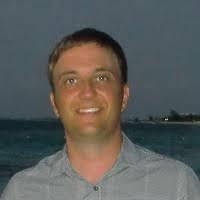Advice for PM Trudeau in advance of visit to Turkey: An Open Letter
19 November 2015
Evagelos Sotiropoulos holds a B.A. and M.A. in political science from the University of Toronto
Dear Prime Minister:
Congratulations on your historic election win. The peaceful transition of power when your Cabinet was sworn-in is something all Canadians can be proud of. It was an illustration to both infant and precarious democracies of how an incumbent leader, regardless of his grip on power, should cede authority to political opponents.
As you and your team transition from campaigning to governing, including by making ministerial mandate letters public, I am reminded of the wise and discerning aphorism by the late Governor of New York, Mario Cuomo: You campaign in poetry; you govern in prose.
Nowhere will this be more apparent than in international affairs. I recall shortly after he became Prime Minister, Stephen Harper remarked how surprised he was by the amount of time taken up by issues outside Canada’s borders; I suspect this will be the same for you. Just this week, we saw the deadly Beirut bombings, as well as the tragic shootings and hostage taking in Paris.
Your schedule for the next two months is already full of foreign trips and summits. You will attend the Paris Climate Conference next month and have invited other federal party leaders as well as your provincial counterparts to join you, a magnanimous move.
Before then, you will be in the Philippines for the APEC Economic Leaders’ Meeting – and a sit down with U.S. President Barack Obama – which comes on the heels of the Trans-Pacific Partnership trade deal. Following Manila, your travels will take you to Malta for the Commonwealth Heads of Government Meeting where you will meet Queen Elizabeth.
Things kick off in Turkey next week, however, with the G20 Leaders’ Summit, during a critical time in that country’s history. You should know that your official counterpart, Prime Minister Ahmet Davutoglu, is a proxy for President Recep Tayyip Erdogan.
Erdogan, the former Prime Minister, has stage-managed the power structure in Turkey to preserve political control. His unabashed objective, which was helped by his party’s surprise victory in recent national elections, is to change the constitution to create an executive presidency – a system of governance most scholars agree is generally inferior to parliamentary democracies.
Erdogan’s unrelenting and adversarial strategy has created deep divisions in Turkey – including the possibility of a civil war according to critics – and threatens regional stability.
The government’s persecution of political opponents, crackdown and imprisonment of journalists and its resumption of armed conflict against its Kurdish minority (indirectly assisted by ISIS according to media reports) are three areas of concern chronicled by observers such as Emma Sinclair-Webb, senior Turkey researcher at Human Rights Watch.
Another area where Turkish policy is notoriously harmful – and completely counter to the fundamental freedoms enjoyed in Canada – is in freedom of conscience and religion.
The U.S. Department of State’s annual report on religious freedom, in addition to other foreign government departments and international think tanks, make note of the significant restrictions and violations religious minorities – from Christians and Jews to non-Sunni Muslims – face in Turkey.
His All-Holiness Ecumenical Patriarch Bartholomew, the leader of the world’s Orthodox Christians, is located in the Phanar district of Constantinople (Istanbul) and often treated as a second-class citizen by Turkish authorities, as he famously told the late Bob Simon on 60 Minutes.
His humble headquarters, known as the Ecumenical Patriarchate, is denied its full freedom to lead the faithful (according to the most recent Statistics Canada National Household Survey, there are almost 600,000 Orthodox Christians in Canada).
For example, Turkey continues to deny the Patriarchate’s ability to train clergy, with the famed Halki Seminary shuttered since 1971. In June 2010, the House of Commons unanimously supported a motion tabled by former Liberal MP John Cannis that expressed support for reopening Halki and recognized its significance to world culture.
Moreover, President Obama traveled to Turkey shortly after his first inauguration and during his address to Parliament urged lawmakers to reopen Halki; he also met with Patriarch Bartholomew during his visit.
Prime Minister, I encourage you to make time to also meet with His All-Holiness. As you may know, he is the leading religious leader on the issue of climate change and care for creation. His efforts on the environment earned him the title of “Green Patriarch” by then U.S. Vice President Al Gore. During your stay at the Patriarchate, the two of you could discuss environmental issues in advance of the Paris summit – a gathering that the Patriarch will also attend.
Before you know it, you will be hosting G7 leaders in Canada in 2018 and show the world how a healthy democracy handles differences and dissent and treats all of its citizens, regardless of religion.
Yours sincerely,
Evagelos Sotiropoulos
Evagelos Sotiropoulos holds a B.A. and M.A. in political science from the University of Toronto. He writes on Canadian politics for The Hill Times and on Orthodox Christianity for HuffPost Religion.
Source: nationalnewswatch.com






